Apppl Combine: Ad Agency In Delhi-NCR For Excellence For The Education Sector
Apppl Combine: Top ad agency in Delhi-NCR, crafting impactful campaigns for the education sector
2024-03-26
Ad Agency, Advertising Agency

Explore the latest trends and strategies for successful brand management in the digital age.
Understanding the Shift to Digital
In the digital age, the landscape of brand management has undergone a significant shift. With the advent of technology and the internet, businesses have had to adapt their strategies to keep up with the changing times. Understanding this shift is crucial for mastering brand management in the digital age.
One of the key aspects of the shift to digital is the increasing reliance on online platforms for various aspects of brand management. From marketing and advertising to customer engagement and reputation management, digital channels have become essential tools for businesses to connect with their target audience.
Furthermore, the shift to digital has also brought about changes in consumer behavior. With the rise of social media and online shopping, consumers now have more control over their purchasing decisions. They can easily research products, compare prices, and read reviews before making a purchase. This means that brands need to be proactive in building a strong online presence and providing a seamless digital experience to attract and retain customers.
Overall, understanding the shift to digital is crucial for brands to stay relevant and succeed in the digital age. By embracing the opportunities and challenges that come with the digital landscape, businesses can effectively manage their brand and connect with their audience in new and innovative ways.
Utilizing Social Media for Brand Building
Social media has become an integral part of brand building in the digital age. With billions of active users, platforms like Facebook, Instagram, Twitter, and LinkedIn offer immense opportunities for businesses to connect with their target audience and build brand loyalty.
One of the key advantages of social media is its ability to facilitate direct and real-time communication between brands and consumers. Through social media, brands can engage with their audience, respond to queries and feedback, and create a sense of community. This not only helps in building brand awareness but also fosters customer trust and loyalty.
In addition to engagement, social media also allows brands to showcase their personality and values. By sharing relevant and engaging content, brands can establish themselves as thought leaders in their industry and connect with their audience on a deeper level. Social media also provides a platform for user-generated content, which can further enhance brand visibility and credibility.
To effectively utilize social media for brand building, businesses should develop a comprehensive social media strategy. This includes identifying the target audience, selecting the right platforms, creating engaging content, and analyzing the performance of social media campaigns. By leveraging the power of social media, brands can amplify their reach and build a strong online presence in the digital age.
Implementing SEO Strategies for Brand Visibility
In the digital age, search engine optimization (SEO) plays a crucial role in brand visibility. With millions of websites competing for attention, it is essential for brands to optimize their online presence to rank higher in search engine results pages.
SEO involves various strategies and techniques to improve a website's visibility in search engine rankings. This includes keyword research, on-page optimization, link building, and technical optimization. By implementing effective SEO strategies, brands can increase their organic traffic and attract relevant visitors to their website.
One of the key benefits of SEO is its long-term impact. Unlike paid advertising, which stops generating traffic once the campaign ends, SEO efforts can have a lasting effect on brand visibility. By consistently optimizing their website and creating valuable content, brands can improve their search engine rankings and attract organic traffic over time.
To implement SEO strategies effectively, brands should stay updated with the latest SEO trends and best practices. This includes staying informed about algorithm updates, conducting regular keyword research, and optimizing their website for mobile devices. By investing in SEO, brands can improve their online visibility and drive more organic traffic to their website.
Harnessing the Power of Influencer Marketing
Influencer marketing has become a powerful tool for brand management in the digital age. With the rise of social media influencers, brands can leverage the reach and influence of these individuals to promote their products or services.
One of the key advantages of influencer marketing is its ability to reach a highly targeted audience. By collaborating with influencers who have a strong following in a specific niche, brands can effectively reach their target market and generate brand awareness. Influencers can create authentic and engaging content that resonates with their audience, leading to increased brand visibility and credibility.
In addition to reach, influencer marketing also allows brands to tap into the trust and loyalty that influencers have built with their audience. When an influencer recommends a product or service, their followers are more likely to trust and consider that recommendation. This can significantly impact brand perception and drive conversions.
To harness the power of influencer marketing, brands should carefully select influencers who align with their brand values and target audience. It is important to establish a genuine and mutually beneficial relationship with influencers, rather than simply using them as a promotional tool. By building authentic partnerships, brands can effectively leverage the power of influencer marketing to enhance their brand image and drive business growth.
Leveraging Data Analytics for Brand Insights
In the digital age, data analytics has become an invaluable tool for brand management. By analysing data from various sources, brands can gain valuable insights into consumer behaviour, market trends, and the effectiveness of their marketing strategies.
Data analytics can provide brands with a deeper understanding of their target audience. By analysing demographic data, purchasing patterns, and online behaviour, brands can develop more targeted and personalized marketing campaigns. This allows them to effectively communicate their brand message and engage with their audience in a meaningful way.
Furthermore, data analytics can also help brands identify emerging trends and opportunities in the market. By monitoring social media conversations, website analytics, and industry reports, brands can stay ahead of the competition and adapt their strategies accordingly. This enables brands to make data-driven decisions and allocate their resources effectively.
To leverage data analytics for brand insights, brands should invest in the right tools and technologies. This includes analytics platforms, customer relationship management (CRM) systems, and data visualization tools. It is also important to have a team of skilled analysts who can interpret and derive meaningful insights from the data. By harnessing the power of data analytics, brands can gain a competitive advantage and drive business growth in the digital age.
Apppl Combine one of the leading brand management agency in Delhi play a vital role in navigating the evolving landscape of brand management in the digital age. We adapt strategies to leverage emerging technologies and platforms, harnessing data analytics to understand consumer behaviour and preferences. Facilitating seamless integration across online channels, ensuring consistent brand messaging and engagement. We prioritize real-time monitoring of digital conversations, allowing swift responses to trends and crises. Furthermore, we facilitate collaborative partnerships and influencer marketing to enhance brand visibility and authenticity. Through innovation and adaptability, Apppl Combine empower brands to thrive amidst the dynamic digital environment, fostering meaningful connections with their audience.

Apppl Combine: Top ad agency in Delhi-NCR, crafting impactful campaigns for the education sector

Apppl Combine is the premier choice for brand management in the hospitality sector. Discover their strategies for enhancing guest experiences, building reputation, and driving business growth.

Apppl Combine, a top ad agency in Delhi NCR, specializes in consumer goods advertising, using data-driven strategies, multi-channel campaigns, and creative excellence to achieve success.

Apppl Combine: Full-service agency offering strategy, creative, marketing & tech for business growth.

Discover how Apppl Combine, Delhi's top creative agency, revolutionizes entertainment with innovative content, strategic partnerships & data-driven campaigns for impactful and personalized experiences

Discover how Apppl Combine, the top ad agency in Delhi NCR, helps sports brands thrive with unique strategies in branding, influencer partnerships, engaging content, and fan loyalty.

Discover how Apppl Combine is redefining marketing as a creative marketing agency. Learn about our blend of creativity, strategy, and technology to create impactful campaigns for modern businesses.

Kajaria Eternity and Apppl Combine redefined leadership in the GVT tile market through innovative campaigns and strategic branding.

The Kerovit ad campaign’s journey with Apppl Combine demonstrates the importance of a clear and consistent brand strategy, particularly in competitive markets.

Learn how advertising agencies can stay ahead in the digital age by embracing technology, using data-driven decisions, and adapting to the evolving digital landscape.

Learn how a top digital marketing agency in Delhi can help your brand thrive with expert SEO, PPC, social media, and more.

This article delves into the critical role of digital marketing agencies in managing online reputation crises.

Explore how SEO and SEM strategies enhance the online visibility of digital ad agencies, ensuring they stand out in the competitive digital landscape.
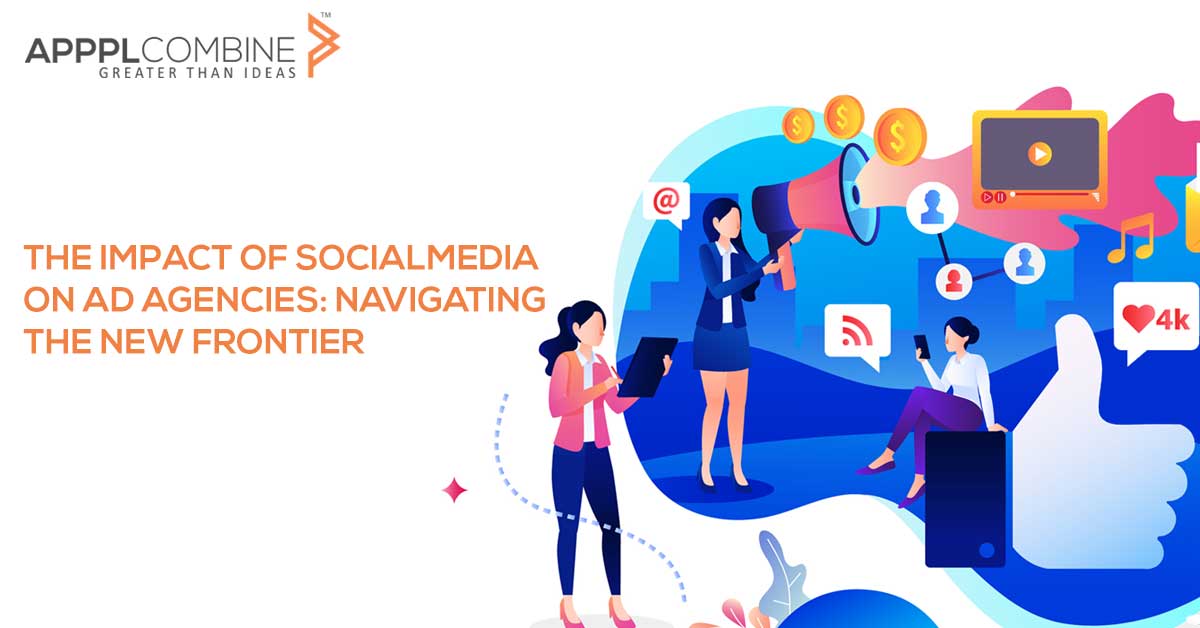
Explore how social media is transforming digital ad agencies. Learn about challenges, opportunities, and strategies from a leading digital marketing agency in Delhi, apppl combine.

Discover strategies to leverage emotional branding and form authentic connections with your target audience. Learn how to identify emotional appeal, create genuine bonds, utilize storytelling.
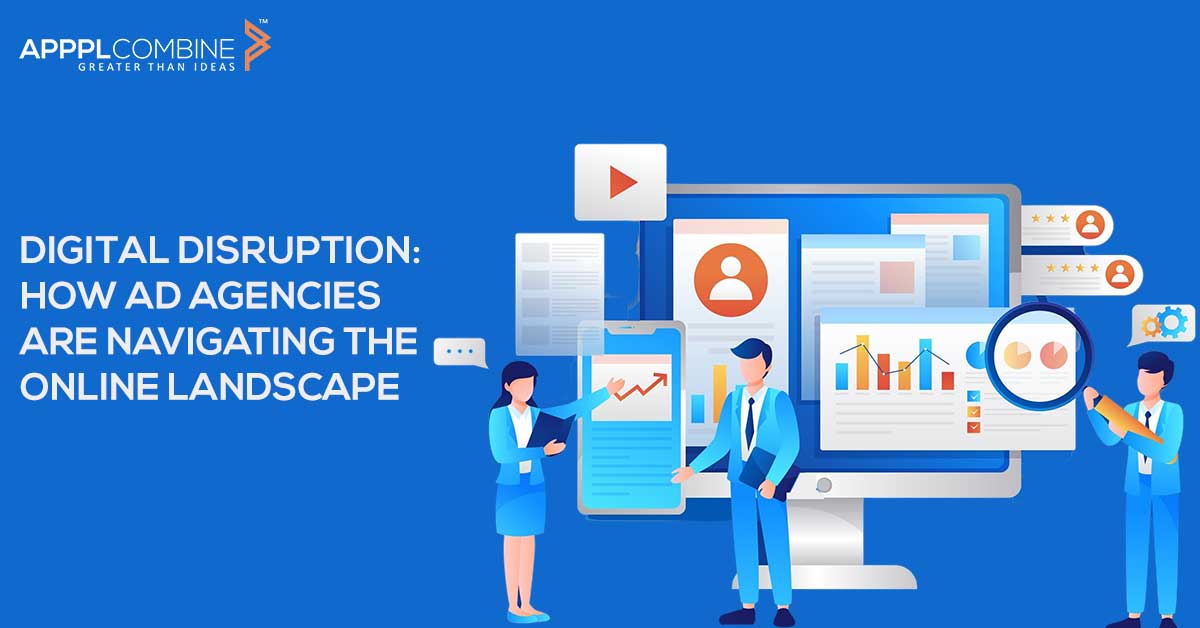
Impact of digital disruption on India's ad industry and strategies for navigating change.

In this blog you will find out how client-agency collaboration drives impactful advertising campaigns by leveraging key factors like communication, trust, and adaptability for marketing success.

Explore how influencer marketing can drive brand growth, shape consumer behavior, and create authentic content. Learn strategies for choosing the right influencers and measuring campaign success.

Discover the differences between rebranding and brand refresh, and learn how to choose the right strategy to update your brand's image effectively.

Discover how brand extension strategies can help your business unlock new market opportunities and expand your reach.

Discover key brand positioning strategies to help your brand stand out from the competition and attract more customers.

Explore effective strategies for rebuilding brand reputation and restoring trust after facing a crisis.

Explore the intricacies of influencer marketing, its evolution, and the pivotal role of authenticity.

Discover how User-Generated Content (UGC) can revolutionize your marketing strategy.

Explore the importance of trust and brand consistency in creating a strong connection with your audience.

Explore key techniques and strategies to develop a distinctive brand identity that resonates with your target audience and sets you apart from competitors.

Brand guidelines play a crucial role in branding by providing a comprehensive framework for consistent branding across all platforms and touchpoints.

Explore effective strategies to leverage social media for brand success. Find out how to identify the right platforms, create engaging content,utilize influencer partnerships, and measure your success

Explore the latest trends and strategies for successful brand management in the digital age.

Discover how a marketing agency in Delhi can help businesses unlock growth, expand their reach, and connect with their target audience effectively.

Elevate your brand with effective brand management agency services. Learn about the role of brand management agencies, the services they offer, and the benefits of hiring them.

Unlocking Business Success: Discover the pivotal role and importance of advertising agencies in Delhi NCR.

Discover the pivotal role advertising agencies play in shaping brand success in Delhi's bustling commercial scene.

Unveiling the power of Delhi's ad agencies: From crafting brand stories to navigating the digital landscape, discover how these agencies fuel business growth and shape consumer engagement.

Uncover how Delhi's ad agencies are shaping brand success stories. Explore their expertise in crafting targeted campaigns that resonate with consumers and propel businesses to new heights

Uncover the crucial role advertising agencies play in shaping brand communication and driving success in Delhi NCR.

Advertising agencies serve as the creative backbone and strategic architects behind brand promotions.

Explore the indispensable role of advertising agencies in today's fast-paced business world

Explore the top 10 advertising agencies in Delhi NCR for 2024, where creativity and innovation converge.

Choosing the right advertising agency is a pivotal decision for any business aiming to enhance its brand visibility, reach a target audience, and achieve marketing goals.

Discover the strategic prowess of advertising agencies in Delhi, serving as partners for businesses seeking effective brand communication.

how full-service advertising agencies in Delhi NCR play a crucial role in seamlessly integrating Artificial Intelligence (AI) for business growth and competitiveness.

Discover how a creative agency in Delhi can inject innovation, craft captivating narratives, and build a brand that thrives.

Explore the key secrets to creating a successful marketing campaign, from setting clear goals to data-driven optimization.

Explore the evolving role of technology in brand marketing. Discover how technology has transformed customer-centric approaches, personalization, communication, and teamwork in the digital age.

Explore the multifaceted world of branding agency services and the role of Apppl Combine, a leading branding agency in Delhi. Learn how a professional branding agency defines brand strategy.

Explore the pros and cons of in-house marketing vs. advertising agencies to make an informed business choice.

Discover the comprehensive services provided by full-service advertising agencies, their benefits, and how to choose the right agency for your business needs.
Explore the role of creative agencies in branding, their services, and the benefits they bring to businesses. Learn how a creative agency can enhance your brand's visibility, create a unique identity.

Explore the transformative role of creative advertising agencies in Delhi, shaping brand landscapes, driving innovation, and inspiring change.

Selecting the ideal advertising agency will give you the confidence to confidently navigate New Delhi's dynamic business scene.

In the bustling streets and vibrant markets of Delhi lies a network of creative advertising agencies that serve as the architects of brand narratives.

Discover how creative advertising agencies in Delhi NCR lead the digital transformation, leveraging online platforms, data analytics, and immersive experiences for impactful brand storytelling.

Explore the world of creative advertising agencies in Delhi NCR and discover the delicate balance between art and strategy.

Factors to consider when choosing the right advertising agency for your business. Apppl Combine offers a proven track record, comprehensive services, and a client-centric approach for effective market

Top 10 Advertising Agencies in Delhi. Find the best advertising firms in Delhi, India, with expertise in ad campaigns, brand management, and more.

Advertising plays a crucial role in shaping consumer behavior and promoting products and services. However, the ethical implications of advertising have long been a topic of debate.

An effective online presence in the digital age requires a website that useful as well as attractive. Selecting the ideal agency is essential for successful web design and development projects.

Content marketing has emerged as a powerful strategy for businesses to connect with their target audience, build brand awareness, and drive meaningful results.

Learn about the process of brand design and development, from defining your brand strategy to establishing a brand voice and monitoring your brand's performance.

Learn effective retargeting strategies to bring back lost customers and boost your online marketing efforts. Explore how segmentation, dynamic retargeting, etc.

Learn how to create a cohesive branding strategy for your company to establish a strong brand identity and connect with your target audience.

In today's competitive marketplace, traditional advertising alone is no longer sufficient to engage and capture the attention of consumers.
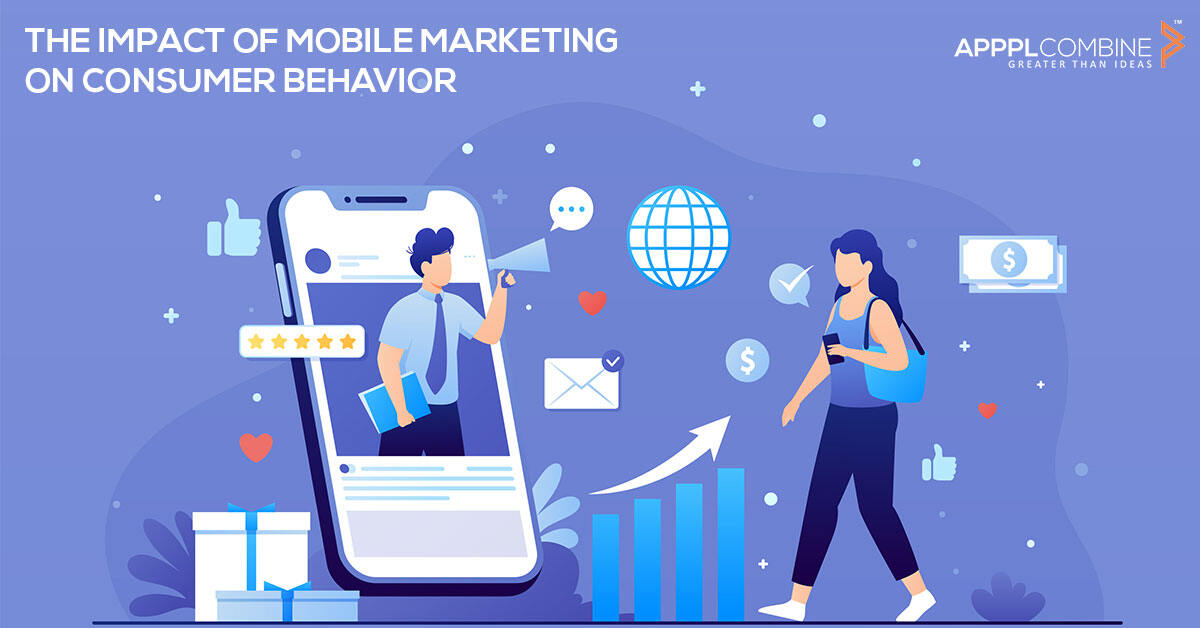
Examining the impact of mobile marketing on consumer behavior, exploring its influence on consumer decision-making, brand loyalty, and overall customer experience

Video marketing has become an essential tool for businesses to increase brand awareness, engage with customers, and drive sales.
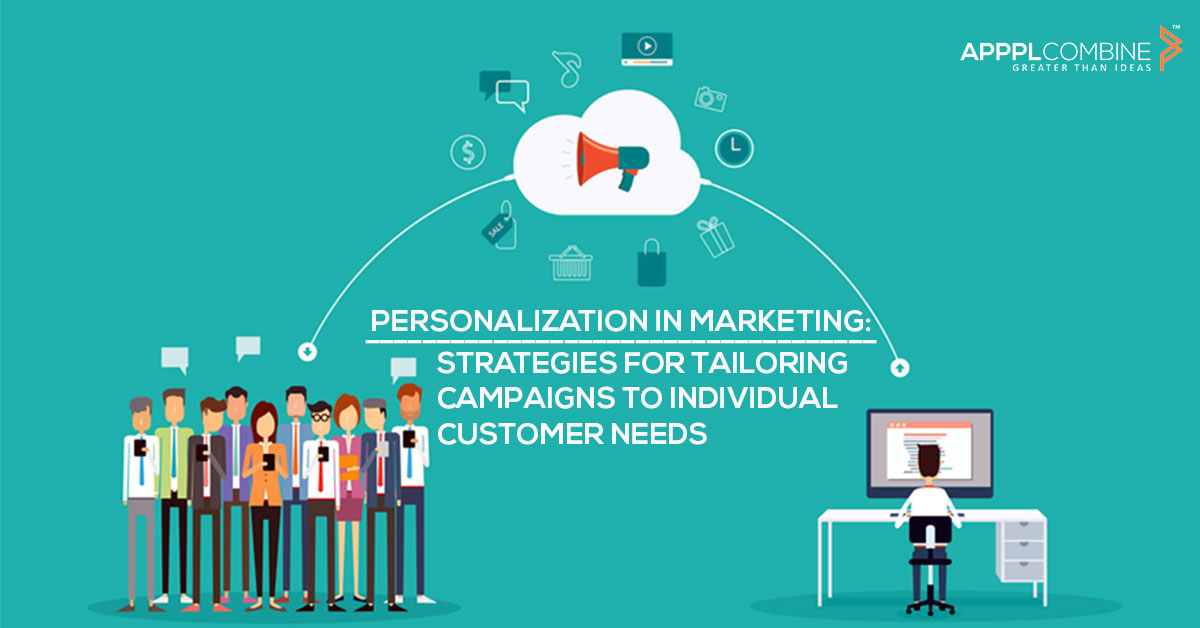
Personalization in marketing is the practice of tailoring marketing campaigns to the individual needs and preferences of customers.

A strong content strategy is essential for any digital marketing campaign. A content strategy outlines what content will be created, who the target audience is, how it will be distributed,

In the ever-evolving landscape of digital marketing, businesses have a wide array of options when it comes to advertising their products or services.

Multichannel marketing is a strategy that uses multiple platforms and channels to communicate with customers, increase engagement, and drive sales.
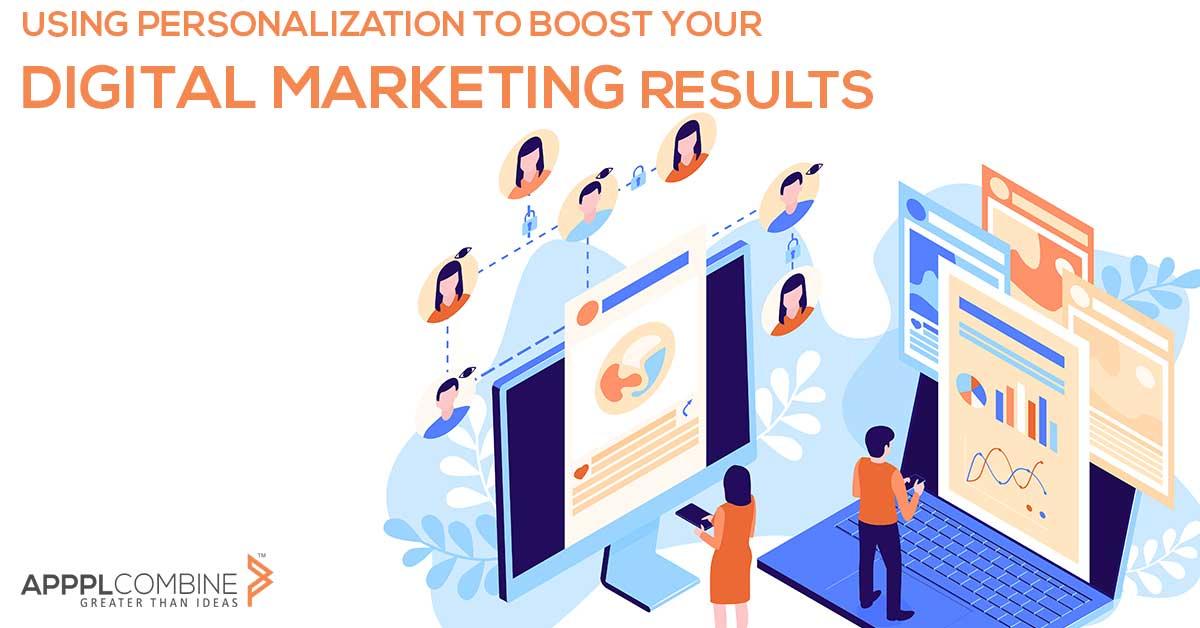
Personalization is the process by which you tailor your digital marketing efforts to the needs and wants of your target audience.

A branding agency help businesses figure out who they are and how they want to present themselves to their customers.

A boutique agency is a relatively small company that focuses on providing a high-end service to its customers.

A creative agency is a term used to describe a company that provides a variety of marketing and advertising services. Basically, they can assist you with any form of creative plan, task, or promotion.

Advertising agencies are service providers that help their clients to initiate, create and strategize marketing and communication measures. An advertising agency can either support its customers in al

A full-service agency is a company that provide the services of a creative team, digital marketing team, and PR team all under one roof.

A brand is more than just a logo; it represents your company, your mission, and serves as the focal point for all aspects of your marketing.

Visual identity is one of the most crucial elements of a business’s branding efforts. It’s what gets people to notice you and learn more about your company, and it’s what helps them remember your bran

To guide you through the strategizing phase below are few points that will help one go a long way:

Brand building is really important to give a brand a unique touch and persona and it helps new businesses get a personalized voice, unmatched by competitors.

Brand consistency refers to delivering the brand message in line with the brand identity, values, and strategy over time.